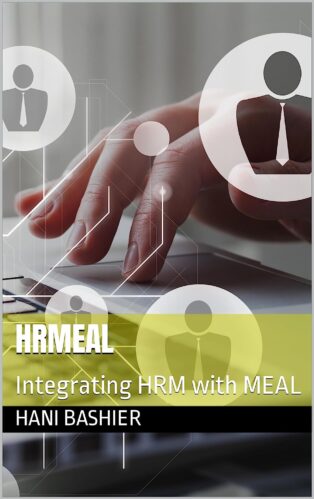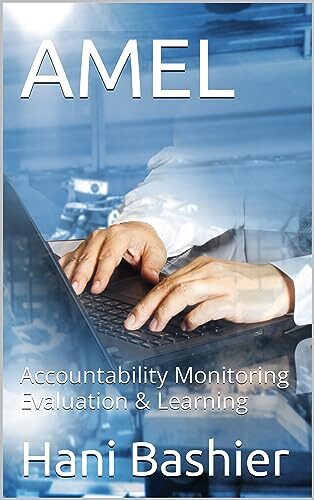The MEAL on MEAL: A Comprehensive Exploration of Monitoring, Evaluation, Accountability, and Learning in Practice
The MEAL on MEAL refers to the in-depth examination of Monitoring, Evaluation, Accountability, and Learning (MEAL) practices within various organizations and sectors. This comprehensive exploration will delve into the importance of MEAL, its key components, and the innovative approaches organizations are using to implement and enhance MEAL practices. The guide will cover the following topics:
- Understanding the significance of MEAL
- Core components of MEAL
- Organizational examples of MEAL practices
- Innovative approaches to MEAL implementation
- Lessons learned and future directions for MEAL
1. Understanding the Significance of MEAL
MEAL is a vital aspect of organizational management, as it enables organizations to track their progress towards strategic objectives, identify areas for improvement, and adapt their approaches based on evidence and learning. By implementing robust MEAL practices, organizations can:
- Improve the efficiency and effectiveness of their programs and operations.
- Strengthen their accountability to stakeholders, including donors, partners, and beneficiaries.
- Enhance their capacity for learning and continuous improvement.
- Foster a culture of evidence-based decision-making and adaptive management.
2. Core Components of MEAL
MEAL comprises four interrelated components: Monitoring, Evaluation, Accountability, and Learning. Each component plays a critical role in ensuring that organizations can assess and refine their programs and operations based on evidence and learning.
Monitoring
Monitoring refers to the ongoing process of collecting, analyzing, and reporting data on an organization’s performance against its strategic objectives. Monitoring activities include:
- Developing indicators and targets to measure progress towards objectives.
- Collecting and analyzing data on a regular basis, often through performance monitoring systems.
- Reporting on progress to internal and external stakeholders, such as management, donors, and partners.
Evaluation
Evaluation is the systematic assessment of the design, implementation, and outcomes of an organization’s programs and operations. Evaluations can be conducted at various levels, including project, program, or organizational levels, and can focus on aspects such as relevance, effectiveness, efficiency, impact, and sustainability. Evaluation activities include:
- Developing and implementing evaluation plans, including the identification of evaluation questions, methods, and timelines.
- Collecting and analyzing data using a range of qualitative and quantitative methods.
- Synthesizing findings and drawing conclusions, often through the development of evaluation reports and recommendations.
Accountability
Accountability involves an organization’s commitment to transparently and responsibly manage its resources and activities, and to report on and be answerable for its performance. Accountability practices include:
- Developing and implementing policies and procedures to ensure the responsible use of resources and adherence to organizational standards and values.
- Engaging stakeholders, such as beneficiaries, donors, and partners, in the planning, implementation, and review of programs and operations.
- Reporting on performance and progress, including the sharing of financial and programmatic information with stakeholders.
Learning
Learning is the process of generating, capturing, and applying knowledge to enhance organizational performance and adapt to changing contexts and needs. Learning practices include:
- Conducting regular reviews and reflections on program and operational performance, often through after-action reviews, lessons learned exercises, or learning workshops.
- Sharing knowledge and best practices within and across organizations, through networks, conferences, or online platforms.
- Applying learning and insights to inform the design, implementation, and improvement of programs and operations.
3. Organizational Examples of MEAL Practices
Various organizations from different sectors have successfully implemented MEAL practices to enhance their effectiveness and accountability. Some examples include:
Non-governmental Organizations (NGOs)
Many NGOs have adopted comprehensive MEAL systems to improve the quality of their programs and ensure their accountability to donors, partners, and beneficiaries. For example, Save the Children International uses a MEAL framework that integrates monitoring, evaluation, accountability, and learning across all its programs, focusing on child-centered indicators and outcomes. This framework enables the organization to track progress, identify areas for improvement, and inform decision-making based on evidence and learning.
Public Sector
National governments and public sector institutions are increasingly recognizing the importance of MEAL in enhancing the effectiveness and transparency of their policies and services. For instance, the Government of Kenya has established the Monitoring and Evaluation Department (MED) within the Ministry of Planning and Development, tasked with coordinating and guiding the implementation of MEAL practices across all government ministries and agencies. This includes the development of national-level indicators, the provision of technical support and training, and the promotion of knowledge sharing and learning among public sector stakeholders.
Private Sector
In the private sector, companies are using MEAL practices to support their corporate social responsibility (CSR) efforts and to measure and improve the social and environmental impact of their operations. For example, Unilever, a multinational consumer goods company, has developed a Sustainable Living Plan that integrates MEAL principles to track progress towards its social, environmental, and economic targets. By monitoring and evaluating its performance in areas such as nutrition, health, and environmental sustainability, Unilever can identify opportunities for improvement and ensure that its CSR initiatives are aligned with its overall strategic objectives.
4. Innovative Approaches to MEAL Implementation
Organizations are increasingly adopting innovative approaches and tools to enhance the effectiveness and efficiency of their MEAL practices. Some examples of these innovations include:
Participatory MEAL
Participatory MEAL involves the active engagement of beneficiaries and local communities in the design, implementation, and evaluation of programs and services. This approach recognizes the importance of local knowledge and perspectives, and seeks to empower communities to take ownership of their development processes. Tools such as community scorecards, participatory mapping, and beneficiary feedback mechanisms can support participatory MEAL practices and enhance the inclusiveness and accountability of organizations.
Data Visualization and Dashboards
Data visualization tools and dashboards can help organizations to more effectively analyze, interpret, and communicate monitoring and evaluation data. By presenting data in visually engaging and interactive formats, these tools can support evidence-based decision-making and enhance the accessibility and transparency of information for stakeholders. Examples of data visualization tools include Tableau, Power BI, and Google Data Studio.
Mobile and Digital Technologies
The use of mobile and digital technologies can enhance the efficiency and reach of MEAL practices, particularly in remote or resource-constrained settings. Tools such as mobile data collection apps, SMS-based feedback systems, and online learning platforms can support the real-time collection, analysis, and sharing of monitoring, evaluation, accountability, and learning information. Examples of mobile and digital MEAL tools include KoBo Toolbox, FrontlineSMS, and Moodle.
5. Lessons Learned and Future Directions for MEAL
As organizations continue to adopt and refine their MEAL practices, several lessons learned and future directions have emerged:
- Integration and collaboration: The effective integration of MEAL with other organizational functions, such as strategic planning, human resources, and financial management, is crucial for maximizing its impact and ensuring a holistic approach to organizational improvement.
- Flexibility and adaptability: MEAL practices should be flexible and adaptable to the unique contexts and needs of organizations, recognizing that there is no one-size-fits-all approach to monitoring, evaluation, accountability, and learning.
- Capacity building: Building the capacity of staff and stakeholders to effectively implement and engage in MEAL practices is essential for enhancing organizational effectiveness and fostering a culture of learning and accountability.
- Continuous improvement: MEAL should be viewed as an ongoing process of learning and improvement, rather than a one-off exercise, with organizations continually seeking to refine their practices based on evidence and insights.
- Technology and innovation: The adoption of new technologies and innovative approaches can enhance the efficiency and effectiveness of MEAL practices, while also addressing emerging challenges and opportunities in the rapidly changing global context.
By embracing these lessons and future directions, organizations can ensure that their MEAL practices continue to evolve and contribute to enhanced effectiveness, accountability, and learning in the years to come.









